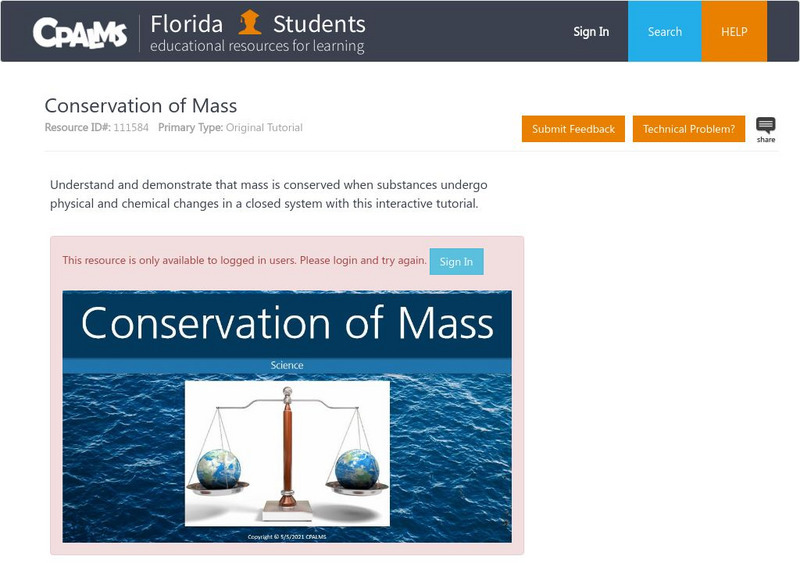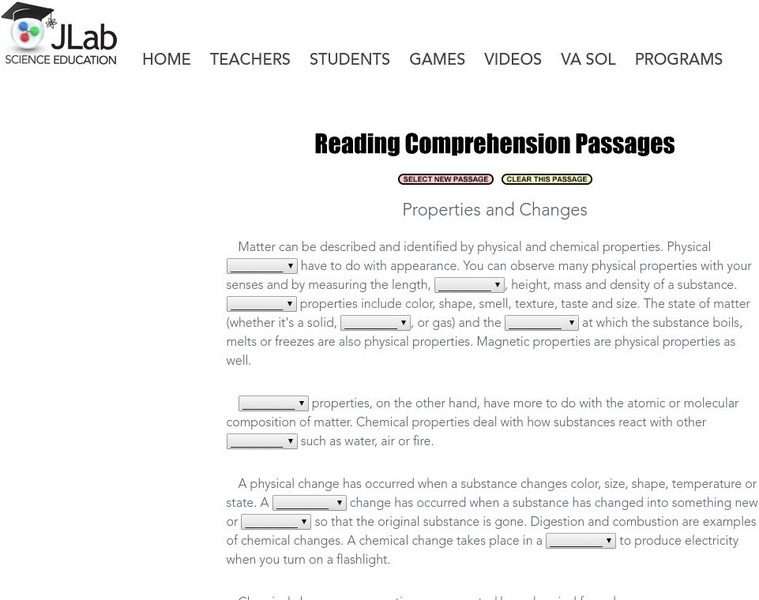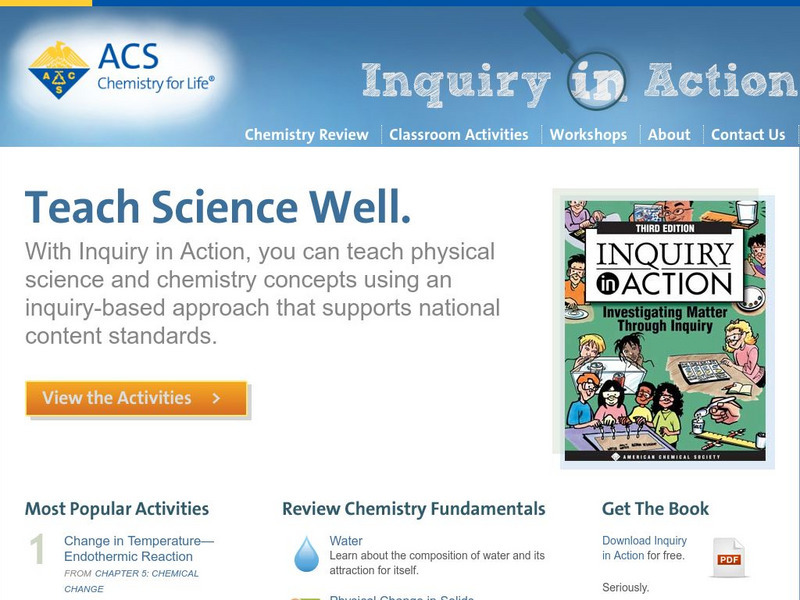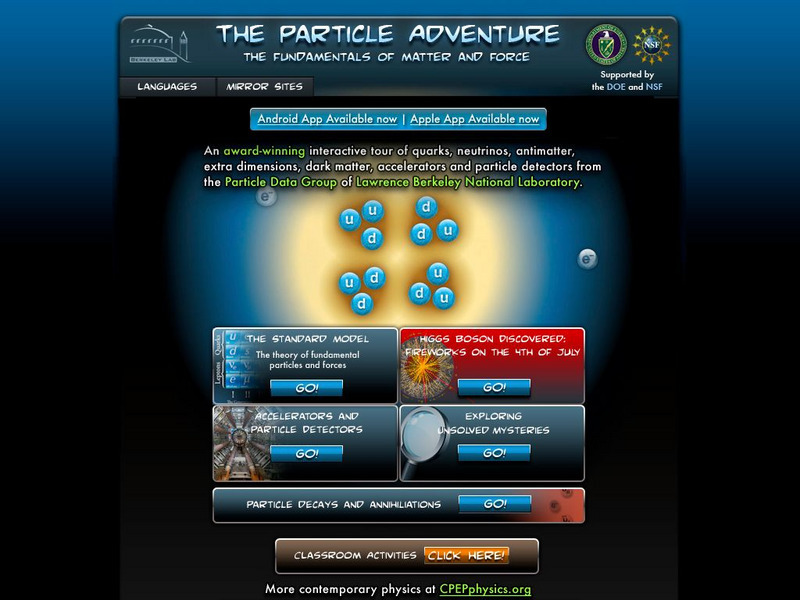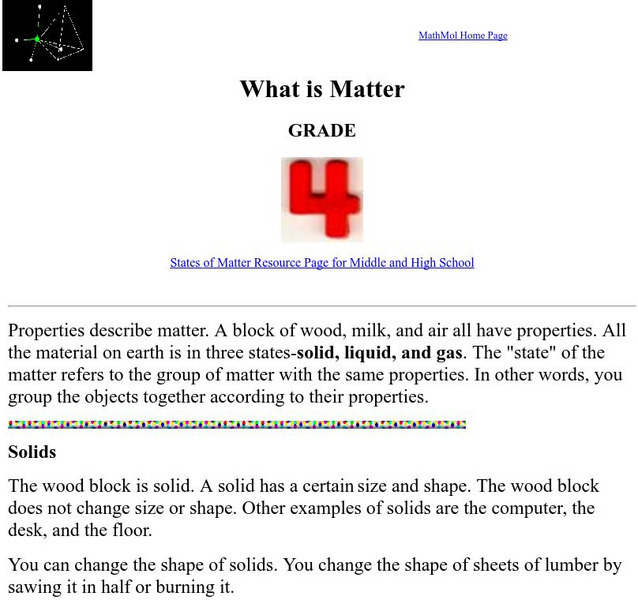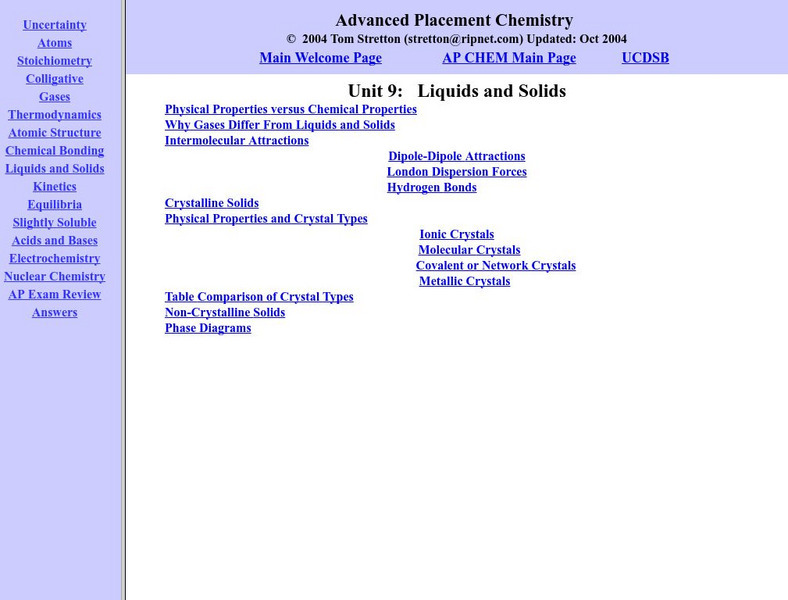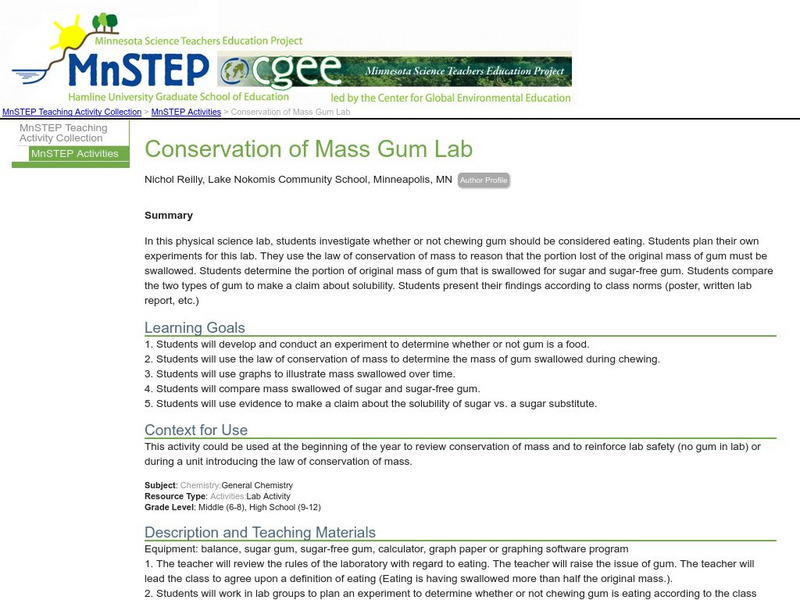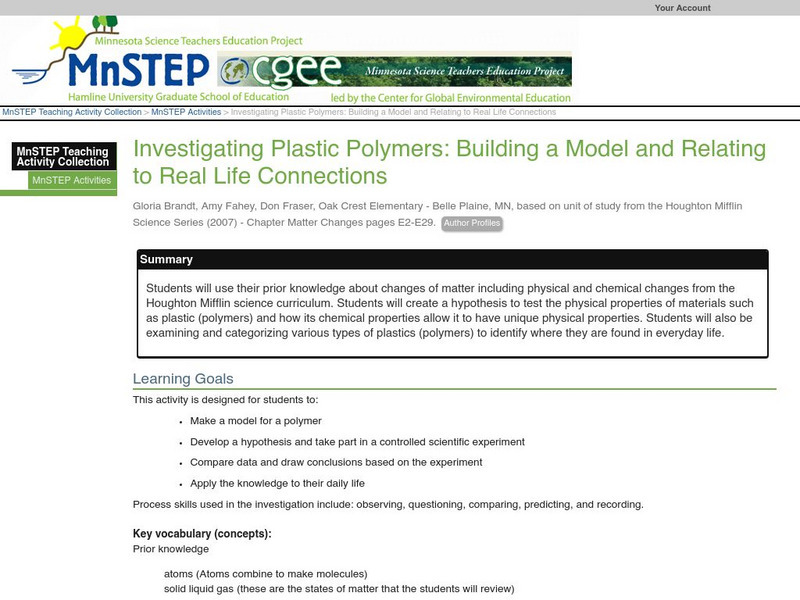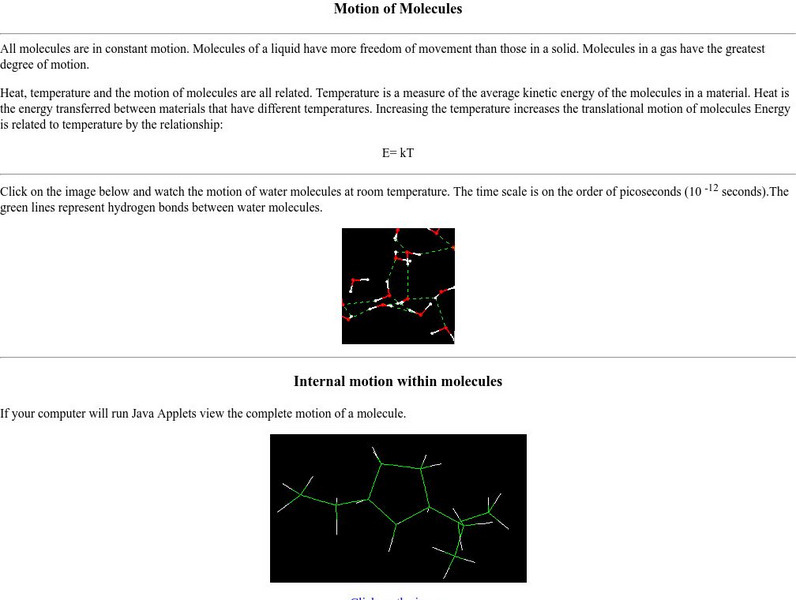Annenberg Foundation
Annenberg Learner: 5 Question Survey: Chemical Change
Find out your or your students' basic knowledge of concepts like matter, molecules and open and closed systems. Afterwards you can see how others answered the questions.
CK-12 Foundation
Ck 12: Fifth Grade Science: Physical Science: Chemical Properties of Matter
A module that provides the definition of chemical property and examples of the chemical properties of matter using explanations, pictures, and review questions.
CPALMS
Florida State University Cpalms: Florida Students: Conservation of Mass Tutorial
Learn how mass is conserved in physical and chemical changes.
CK-12 Foundation
Ck 12: Physical Science: Refraction of Light
[Free Registration/Login may be required to access all resource tools.] Discusses refraction of light in matter and how light changes its speed and angle of refraction according to the type of medium it is travelling through.
Thomas Jefferson National Accelerator Facility
Jefferson Lab: Reading Passage: Properties and Changes
Read and fill in the blanks of this passage properties and changes. Each blank has a dropdown menu with choices. When you finish, click CHECK MY ANSWERS. If you pick a wrong answer, the right answer will be displayed along with your choice.
American Chemical Society
American Chemical Society: Inquiry in Action: Teach Science Well
Online textbook reviews fundamentals of chemistry and physical science via slideshow presentations, notes, and videos. Materials for classroom activities engage students in inquiry-based, hands-on investigations covering molecular...
American Chemical Society
American Chemical Society: Inquiry in Action: Teach Science Well
Online textbook reviews fundamentals of chemistry and physical science via slideshow presentations, notes, and videos. Materials for classroom activities engage students in inquiry-based, hands-on investigations covering molecular...
Lawrence Berkeley National Laboratory
Berkeley Lab: The Particle Adventure
Visit this site for an interactive tour of the atom and all aspects of particle physics. View the animations available with almost every description on this site. A great place for the fundamentals of particles and forces including a...
New York University
New York University: What Is Matter?
At this resource discover the difference between solids, liquids, and gases. Practice what you just learned with included review questions.
New York University
New York University: States of Water
Use this resource to learn about the three different phases of water; solid, liquid, and gas. What happens to water as it changes into a solid or gas? Includes short and easy to do activity.
Other
The Science House: Ziptop Bag Chemistry
In this experiment, three reactions are performed in a sealed Ziploc bag so that they can be observed. Students identify whether physical or chemical change has taken place.
Science Education Resource Center at Carleton College
Serc: Polymers & Plastics: Classification & Models
Students will use their prior knowledge about changes of matter including physical and chemical changes to examine and categorize various types of plastics (polymers). They will identify how their chemical properties allow them to have...
CK-12 Foundation
Ck 12: Physical Science: Refraction
[Free Registration/Login may be required to access all resource tools.] Refraction of light in matter and how light changes its speed and angle of refraction according to the type of medium it is travelling through.
Simon Fraser University
Chem1 Virtual Textbook: Liquids and Their Vapors [Pdf]
With an overview of the various properties of the states of matter, this 18 page pdf file provides a series of topics related to liquids including special physical properties of liquids, changes of state, and more.
Upper Canada District School Board
Tom Stretton's Advanced Placement Chemistry: Liquids and Solids
Take on this self-guided advanced level e-text, and learn about the chemical and physical structure of liquids and solids.
University Corporation for Atmospheric Research
Ucar: Just a Phase: Water as a Solid, Liquid, and Gas
This site helps students construct a model of the arrangement of water molecules when present as solid, liquid or gas. Includes background information, lesson plans, links to standards and assessment ideas.
Science Education Resource Center at Carleton College
Serc: Conservation of Mass Gum Lab
Students investigate whether or not chewing gum should be considered eating using the law of conservation of mass to reason that the portion lost of the original mass of gum must be swallowed.
Science Education Resource Center at Carleton College
Serc: Investigating Plastic Polymers: Building a Model
Learners will use their prior knowledge about changes of matter including physical and chemical changes from the Houghton Mifflin science curriculum. Students will create a hypothesis to test the physical properties of materials such as...
American Chemical Society
Middle School Chemistry: Lesson Plans: What Is a Chemical Reaction?
After observing a demonstration of a chemical reaction between a burning candle and the oxygen in the air, students use atom model cut-outs to model the reaction and see that all the atoms in the reactants show up in the products.
New York University
Nyu: Math Mol: Motion of Molecules
Examine the link between molecular motion and energy. Observe the movement of a molecule at room temperature. Learn about the different types of molecular motion.
Open Curriculum
Open Curriculum: Images, Quantitatively
This article helps students quantitatively describe the changes in images on mirrors or other surfaces.
NC State University
The Science House: Chromatography of Foods [Pdf]
Students will practice the technique of chromatography by separating a mixture of FD&C dyes. Questions related to the experiment along with the answers are available for use by the teacher.




